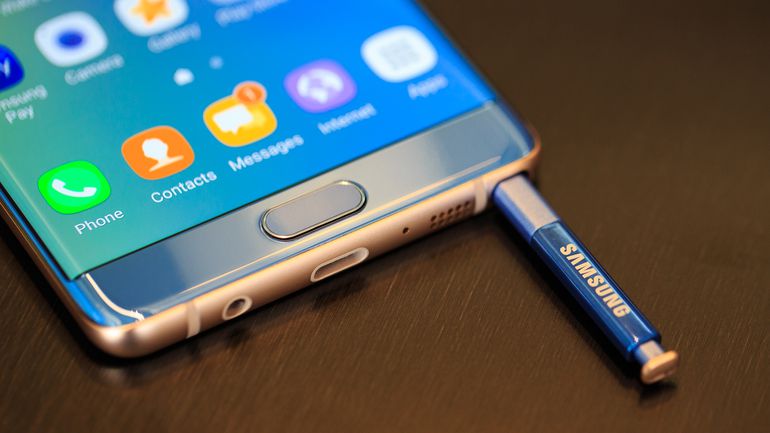All of the almost 3,000 athletes competing at the upcoming Pyeongchang Winter Olympics are set to get perks.
These include the latest $930 Samsung smartphones, top of the range new equipment to take home and sleek Nike uniforms.
But while this will be for all, it does however not include perhaps the 22 athletes from North Korea.
Tough international sanctions, including travel restrictions and a ban on the sale of luxury goods and sports gear are in place to prove to be a hindrance.
They have complicated South Korean Olympic organisers’ efforts to provide their northern neighbours with the same benefits available to other Olympians.
For months, South Korean President Moon Jae-in has sought North Korea’s participation in the hopes it will ease tensions between the still officially warring nations.
The effort would have also helped in preventing the kind of violent incidents which have plagued previous major events hosted by the South.
Officials have rolled out the red carpet and are keen to make sure the visits go off without a hitch.
North Korean female ice hockey players and their South Korean teammates, who will compete as one nation in the Games for the first time, have been living and training together this week.
They have even shared a birthday cake.
Other members of the North Korean delegation, such as the cheer squad, will be housed in luxury hotels.
Overshadowing those efforts, however, are a host of U.S. and U.N. Security Council sanctions on Pyongyang over its efforts to develop a nuclear-tipped missile capable of hitting the U.S.
At almost every turn, South Korea has had to go great lengths to make sure its hospitalities don’t run afoul of sanctions or other laws, according to several South Korean officials.
“Just raising the North Korean flag alongside other national banners in the Olympic Villages required an exemption from South Korean laws banning praise of the North Korea regime,’’ a Pyeongchang organising committee official told Reuters.
The officials all declined to be identified due to the sensitive nature of the matter.
Samsung Electronics, an official sponsor of the Winter Games, is offering 4,000 Galaxy S8 smartphones specially designed for the Olympics to “all” of the participating athletes.
The International Olympic Committee will distribute them, a Samsung Electronics spokesman told Reuters.
But South Korea is not sure if North Korean athletes will be eligible for the treats because of U.N. Security Council sanctions, an Olympics organiser told Reuters.
The official declined to elaborate.
But experts say providing the $930 Samsung phone could violate U.N. sanctions which ban the sale of luxury items and electronics with a potential “dual” commercial and military use.
Meanwhile, the joint women’s hockey team will wear uniforms made by a Finnish company instead of official sponsor Nike.
This is because of concerns about U.S. sanctions, another South Korean government official told Reuters.
Unilateral U.S. sanctions go far beyond the U.N. sanctions, effectively banning U.S. companies and individuals from trading with North Korea.
“We are trying to figure out ways to live up to the sanctions,” the official said.
Nike did not immediately respond to request for comments.
North Korean athletes will also have to return Finnish hockey sticks, skates and other equipment “rented” for them when they leave South Korea, the official said.
South Korea’s unification ministry said it had sought and received temporary permission from the U.S. to fly an airliner to North Korea this week.
The flight took South Korean athletes for training in a ski resort in the North on Wednesday, and brought North Korean athletes to the South on Thursday.
Any aircraft or ship visiting North Korea is banned for 180 days from entering the U.S.
The exemption granted this week only applies to the latest flight, meaning U.S. approval is needed any time North Korean officials visit during the Olympics by airplane or ferry.
A spokesman for the U.S. State Department said Washington was in “close contact with the Republic of Korea on our unified response to North Korea.”
A U.S. Treasury official said the department evaluates applications “for certain prohibited transactions and activities, which can include those related to the upcoming Olympics”, without giving more detail.
For this week’s flight, an Airbus aircraft was used rather than one made by U.S. Boeing due to stricter U.S. sanctions, South Korean broadcaster Channel A reported.
Asiana Airlines, who operated the plane, declined to comment.
To comply with South Korean military rules, the airliner had to fly some distance out to sea to avoid flying over the heavily fortified Demilitarised Zone, the unification ministry said.
The North Korean Olympians are staying at the athletes’ village in Gangneung with athletes from other countries.
The Olympics organising committee was unable to say whether they are being given any special treatment, such as beefed up protection.
North Korea’s 230-member cheering squad is expected to stay at Inje Speedium, according to a unification ministry official, a four-star hotel surrounded by forest.
Rooms there cost 242,000 won ($226) to 715,000 won per night.
Its taekwondo performance team will stay at the five-star Grand Walkerhill in Seoul, which overlooks the Han River and previously hosted American stars such as Michael Jackson and Paris Hilton.
The spending is not unprecedented.
When North Koreans visited the South for the Asian Games in 2002, the Seoul government spent 1.3 billion won hosting them.
But now, even paying for routine things such as medical treatment or providing souvenirs can run into problems, said Yoo Ho-yeol, a professor at Korea University in Seoul.
“Benefits provided to North Korean delegation, which were in the past were not subject to sanctions, can now become a controversy, since sanctions have become much more comprehensive in recent years,” he said.(Reuters/NAN)

